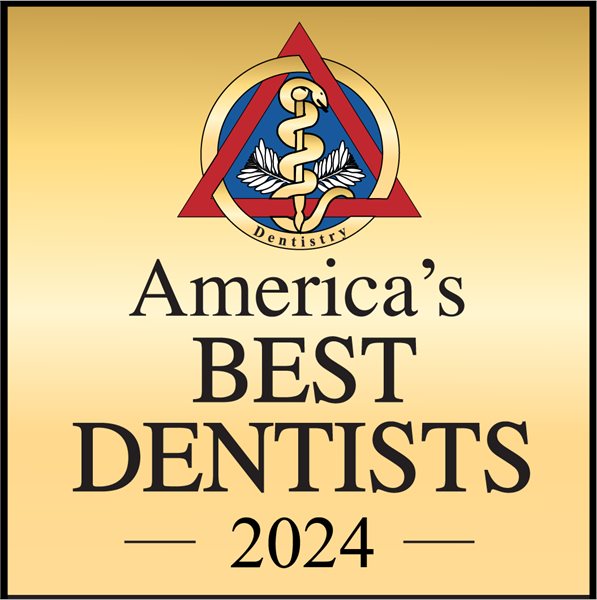Tooth Extractions in Northridge
Do You Need a Tooth Extracted?
No one wants to hear that they need a tooth extracted, but sometimes, it’s best for our oral health. Our Northridge dentist provides reliable and safe tooth extractions to ensure that our patients get the best care possible.
To schedule an appointment, contact our dental office by calling 818-709-8645.
What Is Tooth Extraction?
Tooth extraction is a routine dental procedure that involves removing a tooth from its socket. This removal can be necessary for several reasons, including severe tooth decay or damage, crowding, infection, or problems with wisdom teeth.
Our Northridge dentist prioritizes keeping your natural teeth healthy. However, there are some cases in which removing a tooth through extraction is best for protecting your overall wellness.
Types of Tooth Extraction
Simple Tooth Extraction
Simple tooth extraction is a dental procedure that involves removing a tooth visible above the gum line. This procedure is usually performed with the use of a local anesthetic, and the dentist uses special tools to loosen the tooth and remove it with forceps. Simple tooth extraction is a relatively quick and straightforward procedure, and the recovery time is fairly short for most patients.
Surgical Tooth Extraction
Surgical tooth extraction is a more complex procedure necessary when a tooth is either impacted or hasn’t fully emerged from the gum line. A surgical extraction may require both local anesthetic and dental sedation, and the dentist may need to make an incision in the gum tissue to access the tooth. These also may be done to extract multiple teeth at one time.
In some cases, the dentist may need to remove some bone tissue to fully extract the tooth. The recovery time for surgical tooth extraction can take anywhere from a few days to a few weeks depending on the person. The patient may need to take prescription pain medication to manage any discomfort.
Reasons For Tooth Extraction
Tooth extraction may be a preventative measure to avoid potential dental problems in the future. Common reasons dentists perform tooth extractions include:
- Tooth Decay: If a tooth has extensive decay that a filling, root canal, or other treatment can’t repair, extraction may prevent further damage to surrounding teeth and tissues.
- Gum Disease: Advanced periodontal disease can cause the gums to recede and the teeth to loosen, making extraction necessary to prevent further damage.
- Impacted Teeth: Teeth unable to fully emerge from the gums, such as wisdom teeth, can become impacted and cause pain, infection, and damage to surrounding teeth.
- Crowding: Tooth extraction can make room for orthodontic treatment or address issues with overcrowding.
- Trauma: A tooth may need extraction following damage from a traumatic injury.
- Infection: If a tooth becomes infected and it spreads to the surrounding tissues or bone, extraction may be necessary to prevent further damage and infection.
- Preparation for Dentures: If a patient needs dentures, extraction may be necessary to remove any remaining natural teeth that could interfere with the fit and comfort of the dentures.
The Tooth Extraction Process
The tooth extraction process begins with a thorough examination of the affected tooth and surrounding tissues. Often, patients will need X-rays taken so the dentist can assess the tooth’s position and extent of any damage or decay. You’ll also discuss tooth replacement options. Once the patient’s prepared, the dentist or oral surgeon administers an anesthetic to numb the area around the tooth. If the tooth is impacted or difficult to remove, an incision may be made in the gum tissue to access the tooth.
Next, our dentist will use specialized tools to loosen the tooth from the socket and carefully remove it. Occasionally, the tooth may need to be broken into smaller pieces to make it easier to remove.
After our dentist has extracted the tooth, the dentist or oral surgeon cleans the area and may place stitches to help the gums heal. The patient will receive instructions on caring for the extraction site, including avoiding certain foods and activities for a while.
Tooth Extraction Aftercare
After tooth extraction, following proper aftercare instructions is vital to promote healing and prevent complications. Here are some general guidelines for tooth extraction aftercare:
- Bite Down on a Gauze Pad: Bite gently on a gauze pad for 30 to 45 minutes after the extraction to help stop bleeding. Replace the gauze as needed.
- Avoid Strenuous Activities: Avoid any strenuous activities, such as exercise, for at least 24 hours after the extraction to help prevent bleeding or other complications from occurring.
- Take Pain Relievers: Take pain relievers as prescribed by your dentist or oral surgeon to help manage any pain, discomfort, and swelling.
- Apply Ice: Ice the affected area for 10 to 20 minutes at a time to help reduce swelling.
- Rest: Rest for the first 24 hours after the extraction and avoid any activities that could dislodge the blood clot from the tooth socket.
- Avoid Smoking: Avoid smoking or using tobacco products for at least 48 hours after the extraction, as they can slow the healing process.
- Eat Soft Foods: Eat soft foods, such as soup, yogurt, or mashed potatoes, for the first few days after the extraction. Avoid hard, crunchy, or sticky foods that could irritate the extraction site.
- Rinse With Salt Water: Rinse your mouth with salt water (1/2 teaspoon of salt in 8 ounces of warm water) 24 hours after the extraction and continue two to three times a day for the next few days. This rinse can promote healing and reduce the risk of infection.
- Brush Carefully: Brush your teeth carefully, avoiding the extraction site, for the first few days after the extraction.
- Attend Follow-Up Appointments: Attend follow-up appointments with your dentist or oral surgeon to ensure proper healing and monitor for any complications.
Following these aftercare instructions can help ensure a smooth recovery after tooth extraction. If you experience severe pain or any unusual symptoms or complications, contact our dentist immediately.
Risks and Complications of Tooth Extraction
While tooth extractions are generally safe and routine procedures, there are potential risks and complications to keep in mind. These may include:
- Bleeding
- Infection
- Nerve damage
- Dry socket (a painful condition that can occur when the blood clot in the socket is dislodged)
- Damage to surrounding teeth or tissues
- Reactions to anesthetic
Discuss any concerns with our Northridge dentist before the procedure, and carefully follow aftercare instructions to help minimize your risk of complications after getting a tooth pulled.
Tooth Extraction Cost
On average, tooth extraction can range from $120 to $250 for a basic extraction. However, for those getting their wisdom teeth extracted, costs can range between $1,000 to $3,000 per tooth. Your total estimated cost will vary depending on factors such as:
- Type of extraction
- Where you’re located
- Dental insurance plan
- Additional procedures
- The experience of your dentist or oral surgeon
- Number of teeth being extracted
Frequently Asked Questions
Is tooth extraction painful?
The tooth extraction process is usually not painful, as local anesthetic numbs the area. However, patients may experience some discomfort or pain after the procedure, which is easily manageable with pain medication prescribed by your dentist or oral surgeon.
How long does it take to recover from a tooth extraction?
The recovery time can vary depending on the individual and the complexity of the extraction. Most people can return to normal activities within a few days to a week after the procedure, but it may take several weeks to fully heal.
Can I eat after a tooth extraction?
Dentists generally recommend sticking to soft, cool foods for the first few days after the procedure and avoiding hard, crunchy, or sticky foods that could irritate the extraction site. Be sure to follow any specific aftercare instructions provided by your dentist or oral surgeon.
Do I need to replace a missing tooth after extraction?
Many dental professionals will suggest replacing missing teeth to prevent problems with chewing, speaking, and the alignment of surrounding teeth. Your dentist or oral surgeon can discuss replacement options with you, such as dental implants, bridges, or dentures.
Safe and Effective Tooth Extraction at Kevin H Gropp, DDS
While dental professionals will do everything to prioritize saving and protecting their patients’ natural teeth, tooth extraction is sometimes the best option for their oral health. By removing an infected, impacted, or damaged tooth, your dentist can save the surrounding teeth and jaw from further damage.
Learn more about the potential benefits of tooth extraction by contacting our Northridge dentist at 818-709-8645. We provide safe oral surgery services to ensure your smile stays beautiful and healthy.

Dr. Kevin H Gropp graduated from the University of Southern California School of Dentistry (USC) in 1988. Prior to studying at USC, he attended California State University Northridge (CSUN) where he earned his Bachelor’s degree in Biology. Dr. Kevin Gropp has been practicing in the Northridge area for over thirty years and values the community connections he has developed during this time.
Dr. Gropp is a member of the American Dental Association (ADA), California Dental Association (CDA), and the San Fernando Valley Dental Society (SFVDS). His passion for continuing his dental education through continuing education courses every year serves as a benefit to his patients as he is always up-to-date on the latest methods, materials, and technology in dentistry.




